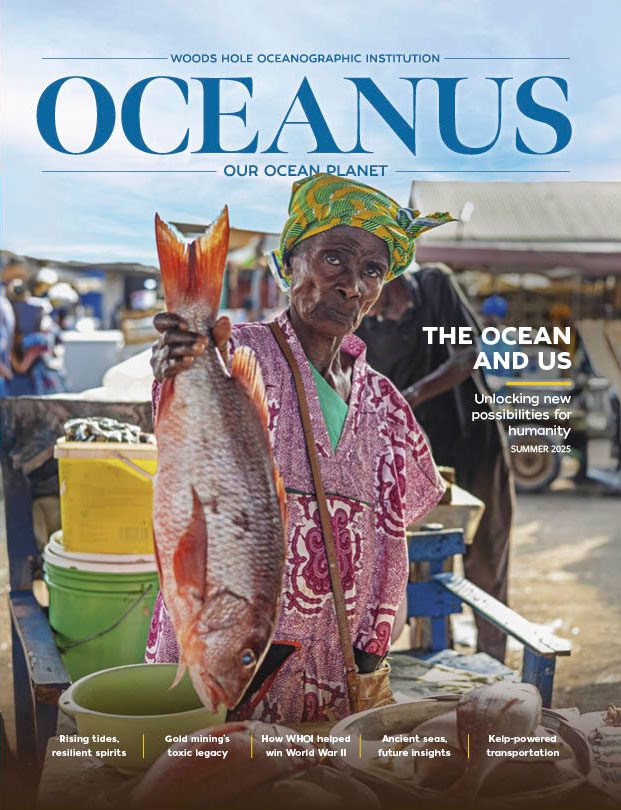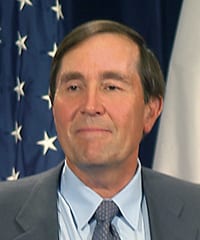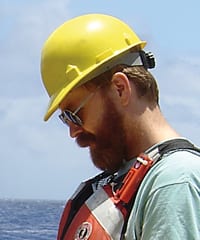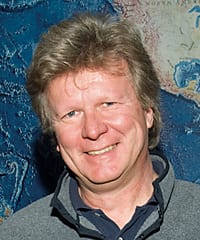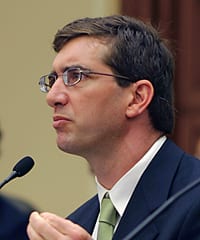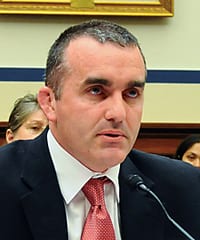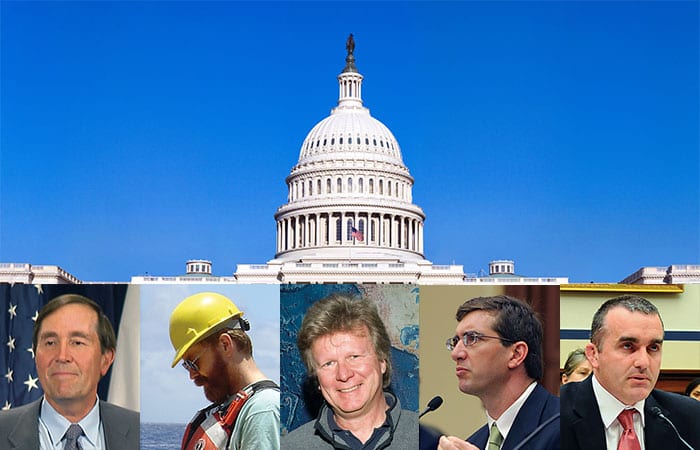
WHOI Scientists Bring Expertise to Capitol Hill
Several WHOI scientists have traveled to the nation’s capital, supplying Congress with scientific information and advice on problems ranging from toxic algae and oil pollution in the oceans to climate change and a controversial proposal to mitigate it.
Biologist Don Anderson was asked to testify at a hearing of the House Science and Technology Committee’s Subcommittee on Energy and Environment on July 10, 2008, on the growing problem of harmful algal blooms—the periodic rampant growth of toxic marine plants that taint shellfish, kill fish and marine mammals, and cause many other negative impacts. Anderson, who has studied harmful algal blooms for 30 years, reported on research progress to understand the phenomenon and options to prevent and mitigate its economic and health impacts.
Human actions, particularly burning of fossil fuels, have created a buildup of the greenhouse gas carbon dioxide in our atmosphere. Can the ocean be used to help store the excess and curtail global warming? Marine chemist Ken Buesseler outlined the pros and cons of that option during a briefing for House and Senate staff on proposals to fertilize the ocean with iron to stimulate phytoplankton growth—ultimately to draw more carbon dioxide from the air and sequester it in the deep sea. His briefing came on the heels of a two-day symposium at WHOI that included ocean iron fertilization researchers from around the world.
In April 2008, geologist Bill Curry briefed staff members of the Senate Commerce Committee and other interested senators on the potential effects of climate change in the vulnerable Arctic region, particularly the melting of Arctic Ocean sea ice. Curry, director of the WHOI Ocean and Climate Change Institute, explained how changes in the Arctic could affect the rest of the planet. Despite its remote location, the Arctic Ocean is a critical component in the interconnected “machinery” that regulates Earth’s climate, he said. Continued research, he added, is needed to understand the factors that contribute to sea ice formation and the impacts of melting on the ocean’s global circulation.
In testimony before the House Committee on Science and Technology on June 5, 2008, marine geochemist Scott Doney explained how rising carbon dioxide levels in the atmosphere are raising the acidity of the oceans. That, in turn, could harm coral skeletons and the shells of organisms at the center of the ocean food web, with far-reaching detrimental impacts on marine ecosystems. Doney discussed the strengths and weaknesses in current federal research efforts to fill knowledge gaps necessary to forecast ocean acidification and to develop adaptation approaches for marine resource managers.
Chemist Chris Reddy explained the need for research on the often-overlooked impacts of oil discharged to the oceans via insidious pathways: jettisoned fuel from airplanes, activities associated with the extraction of petroleum, air pollution, runoff from land sources such a car motor oil, and routine shipping operations, which alone account for 46 percent of the oil spilled in the ocean. Oil-coated birds catch attention after oil spills, “but there are also less visually arresting but more chronic and persistent effects that are more difficult to investigate,” Reddy told the House Transportation and Infrastructure Committee’s Subcommittee on Water Resources and Environment on June 12, 2008.
From the Series
Related Articles
- Our eyes on the seafloor
- 4 Potential Solutions for Corals in Crisis
- The hypoxic reef
- WHOI scientists discuss the chemistry behind Sri Lanka’s flaming plastic spill
- An ocean of opportunity
- The ocean has heartburn. Is relief on the way?
- Science RoCS Initiative responds to need for increased ocean monitoring
- A new ocean soundscape
- Putting the ‘nuclear coffin’ in perspective
